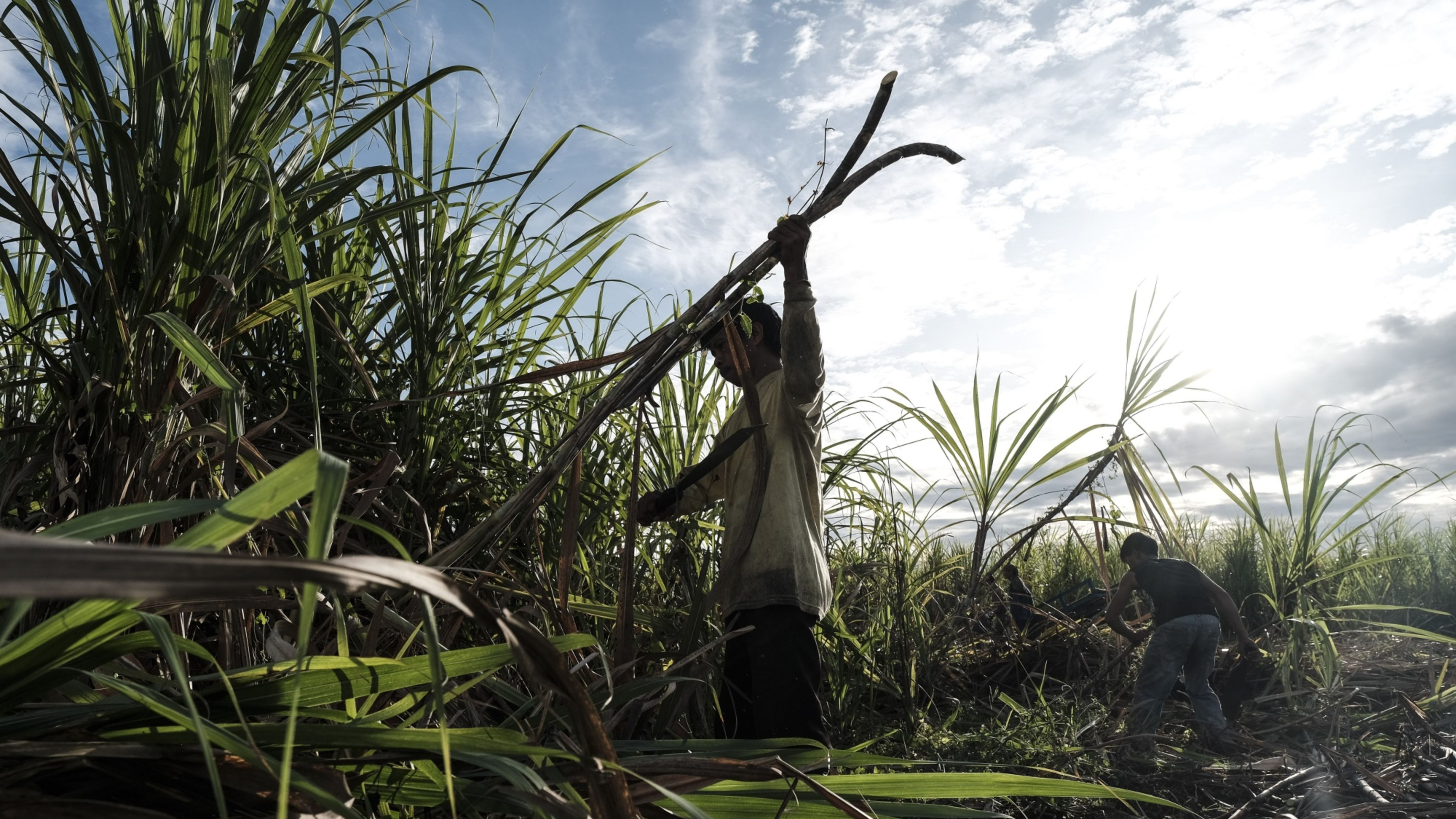
by Preslav Raykov
While you rhythmically stir the spoonful of white granulated sugar in your coffee and check the dollar exchange rate, oil quotes and the weather forecast, you probably don't realize that they are one of the main driving factors in the price of sugar in international markets.
Of course, we should not forget that the amount of sugar in the coffee of Roberto Campos Neto, the governor of the Brazilian Central Bank, also has a huge impact on the prices of the white crystal. The country is the largest producer of sugar in the world and the currency and financial policies led by the Banco Central do Brasil have a strong impact on the sugar industry there and exports of the raw material to the world.
In the last 15 years, the opinion that sugar is harmful to health has been widely imposed. The scientific facts prove it indisputably. If sugar is not used in the right products, in the right form, dosage and norm, it effects negatively the health condition of people. Limiting the consumption of sugar today is extremely difficult and almost impossible. The excessive use of crystalline white sugar encouraged the World Health Organization to impose the opinion that it is better the sugar to be limited or even excluded from people’s lives and diet. But as a raw material, sugar is much more important than a number of other food ingredients that today mankind has successfully domesticated in the name of physical and mental enjoyment of life. The sugar industry provides a large part of the income with which the multi-million population in a number of developing countries engaged in the sector ensures their economic existence, and the world sugar markets have a logic that remains hidden to the common man.
Sweet Markets In 2021, the global market for refined table sugar reached a volume of 185 million tons, and in 2027 it is expected to reach 206.6 million tons, growing at a volume of 1.8% per year. The main primary raw materials for the production of sugar are cane sugar and sugar beet, which are grown in different climate zones around the world. Sugar beet thrives in colder, wetter weather, while sugarcane thrives in warm, tropical areas. Nowadays, the majority of global production (70%) of sugar comes mainly from sugar cane, with only 20% of the world's quantities produced from sugar beet – mainly in Europe. An interesting fact is that for the period 2000-2018, sugarcane accounted for approximately 20% of the world's agricultural crop production – a value almost twice the share of maize, which is the second most produced agricultural crop in the world (FAO, 2020)
The primary raw materials for the production of sugar are available worldwide, and almost all tropical and subtropical regions account for their cultivation, generating a major part of the economic activity in these areas falling into the developing country sector. In most of the major sugar-producing countries, sugarcane has now become a crop of great socio-economic importance,
and recently sugarcane has undergone rapid expansion, taking over areas of other crops, pastures and forests.
Mainly two countries – Brazil and India, dominate the world production and export of sugar and refined sugar products. India represents around 20% of the total volume of world sugar production and it mainly produces and exports lower quality white sugar, as Brazil is rather focused on unrefined sugar export. For the last agricultural marketing season in 2019-20, India managed to produce 27,4 million tons of sugar, and the sugar cane sector employs almost 50 million people, making a significant contribution to a number of local economies. Over 500 processing and refining factories, out of a total of 732 for the country, are concentrated in the three main plantation growing regions – Uttar Pradesh, Karnataka and Maharashtra. India is also the largest consumer of sugar in the world.
For its part, Brazil occupies almost 25% of the world's sugar supply, and is responsible for a record 42% of the total export of the raw material worldwide.
An interesting fact is that the Brazilian farmers can produce large quantities sugar cane in a very small part of arable land. Only 1% from the total agricultural lands in the country are occupied by sugar cane. Sugar cane production in Brazil is also a key sector for the social development of the country. About 40% of the sugar cane processed by the Brazilian factories is supplied by 712 000 independent farmers, and the law states that the sugar export from Brazil to Europe should be committed through the northeastern region of Brazil, which is one of the most economically difficult for development regions of the country.
A competitive clash In economic terms, sugar has a direct competitor that many do not suspect. This is the production of ethanol (ethyl alcohol) used primarily as a raw material in the bio fuel industry. Although sugar is a critical ingredient in many food products, it is also the primary raw material for ethanol production. Ethanol is required as a motor fuel additive in many countries, aiming to reduce pollution from vehicles by reducing the carbon in their emissions.
Burning ethanol in internal combustion engines has been shown to generate up to 70% less carbon emissions than conventional fuels. For many years, ethanol has proven to be a suitable fuel source for internal combustion engines. The lower emission fuel can also be reliably blended with gasoline to limit the total amount of crude oil needed to meet the energy requirements of modern fuels. This is where the correlation with oil prices on international markets comes in.
Brazil and the US are the two largest producers of ethanol in the world, but in the US corn is the main ingredient of the bio fuel, while in Brazil it is all about sugar, and therefore the change in oil prices directly affects the value of sugar. Brazil's sugarcane ethanol accounts for 18% of the country's renewable energy production. It has been empirically proven that the price of ethanol internationally is directly related to that of crude oil on international exchanges. And when oil prices are high, the market begins to look for substitutes and additives to lower fuel prices for the end user. This leads to an increased demand for ethanol for production, for which sugar cane is used as a raw material. This process of increased demand for sugarcane by ethanol producers creates a shortage of the raw material for sugar production, and accordingly the price of sugar rises almost in proportion to the rise in the price of oil. Such a recent example was the rise in crude oil prices since the beginning of October, immediately after OPEC+ announced a production cut of 2 million barrels per day. This gave a strong boost to the trade in ethanol, and accordingly drove up the price of sugar in international markets.
Changes in the exchange rate of the Brazilian real against the dollar also affect the price of sugar. Like other major commodities, the price of sugar in international markets is quoted in US dollars. At the same time, production costs are usually calculated in Brazilian reals. When the South American currency falls against the dollar, producers in Brazil have lower production costs. At the same time, the export of the commodity is able to bring more in terms of US dollars.
The prices of the most traded sugar futures on the international exchanges in New York, London, Singapore and Amsterdam are also strongly influenced by political developments in the main producing countries. Such interconnections can be quickly established by events in Thailand, where sugar prices found strong support after the government in Bangkok announced that it would provide two years of government subsidies for bio fuels. Thailand is the world's fourth-largest sugar producer by volume, and traders saw the news as supportive for the price because the subsidies could reduce the amount of sugar Thailand has for export as they encourage Thai producers to increase ethanol production instead of exporting sugar.
If the world is to continue to enjoy irresistible sugary temptations, we will need to reduce the negative climate effects of economic activity. It is predicted that climate change may have severe consequences for sugarcane production in the world, especially in developing countries due to the relatively low adaptive capacity of this agricultural crop, as well as the high vulnerability to natural anomalies. This is not only to the detriment of the final consumers of sugar, but also mainly harms the societies that are engaged in the cultivation and processing of the raw material.
Unhealthy living and sweet taxes In the modern food system, it is extremely challenging to limit the consumption of sugar – a major factor leading to obesity, diabetes and tooth decay worldwide. According to the latest data from the World Health Organization (WHO), the increase in obesity worldwide has almost tripled since 1975, and today, approximately 39% of adults are overweight and 13% are also morbidly obese. More worrisome, however, are the data for the growing generation, where it was found that about 41 million children under the age of 5 are overweight or obese, and the number of children and adolescents with registered obesity has increased by 11 million in 1975 to 124 million in 2016 and continues to grow.
Obesity and overweight are not the only health problems associated with excessive sugar consumption. It was found that regular drinkers of sweetened beverages – 1 to 2 cans per day (250 ml) or more – had a 26% higher risk of developing type 2 diabetes than other people. Globally, the number of people with diabetes has increased from 108 million in 1980 to 537 million in 2021. And the forecast indicates that it will reach 643 million by 2030. According to the WHO, diabetes is the cause of more than 6.7 million deaths each year, and the cost to health systems of treating the disease amounts to $966 billion—or nearly 9% of total global health care spending.
It is not a secret that the sweetened drinks are the main source of sugar in the modern diet and their consumption grows exponentially – especially among the young people. On average, a can of sweetened drink contains about 40g of free sugars, or the equivalent of about 10 tablespoons of table sugar.
This is the reason why more countries are introducing an effective tax on the use of sugar in various food and drinks. In the UK this is already the case with the 2018 introduction of the 'sugar tax', officially called the Soft Drinks Industry Levy (SDIL). The tax imposes a levy of 24p on drinks containing 8g of sugar per 100ml, and 18p per liter on those with 5-8g of sugar per 100ml, payable directly by producers to the royal treasury.
Tax on sugar is not the first effort for reducing its consumption in the UK. A few years ago the health authorities on the Island called for a 20% reduction of sugar content in food products until 2020, but despite this, the Public Health England (PHE) report from May this year states that the food producers and the supermarkets succeeded to reduce the content only with 2%. Meanwhile, obesity figures continue to rise relentlessly and defy the effectiveness of the tax. The new British prime minister Liz Truss recently opened the rhetoric in the direction of abolishing this tax and declared against the intervention of the state in people's lives by imposing rules on how, what and when to eat. The proposal was received extremely negatively by the health authorities, who declared that it was a public problem that everyone should jointly deal with.
In the US there is still no nationwide tax on sugar in beverages, although some states and cities have implemented such measures. In Berkeley, California, a tax of 10%, or one penny per fluid ounce was introduced in 2015. The tax added about 12 cents to the price of a standard can of soft drink, but calculations show the tax reduced sales by nearly 10% and increased the number of people buying water instead of cola. The applicability of taxes on sugar in beverages is highly dependent on the level and economic development of the community where it is applied. Unlike Berkeley, where most of the people fall into the so-called middle class and have above-average incomes and a higher level of education, in the state of Philadelphia the proposed tax was not particularly welcomed by local residents. The fact is that Philadelphia is quite economically underdeveloped, and most of its residents fall under the middle class line in America.
In Europe, some countries are already successfully applying the tax rate for added sugar to beverages. Belgium, Finland, France, Hungary, Ireland, Latvia, Monaco, Norway and Portugal currently have effectively applied tax rates on drinks, containing sugar. Despite the World Health Organization recommendations for universal tax rates on added sugar, there are still only 10 to 53 or only 19% of the countries in Europe that have yet approved tax measures.
In search of sweet alternatives Producers also change their technologies and actively search for sugar substitute for their products. Growing demand of zero-calorie or low-calorie products, combined with rising awareness of consumers regarding sugar substitute, is the main factor, contributing for sugar replacements market growth. It is expected to grow at 5.5% annually and reach a valuation of over $27.62 billion by 2028, up from $17.06 billion in 2019. Apart from food industry hegemons such as Cargill, ADM, Tate&Lyle, Mondelez and Nestle, that invest heavily in developments to replace sugar in industrial production, in recent years they have also imposed some innovative solutions developed by start-up companies. US-based startup Sugar 2.0 has succeeded in producing a real sugar substitute based on cane sugar, but which also contains a high amount of soluble fiber. This property of fiber allows better absorption of sugars in the body and stabilizes blood sugar and cholesterol levels. Sugar 2.0 sugar substitute helps patients with diabetes, obesity and other related health problems to balance the consumption of sugar in the body.
Recently, Israeli food technology start-up company – Resugar – closed a series A funding round and raised 3 million dollars. The company says that they have the capacity to supply the world’s first “no-compromise” sugar substitute. Its entirely natural compound tastes and behaves identically to sugar, but without any of the harmful health effects, say founders Niv Ben-Ami and Ron Livni. The capital raised in this funding round will be used for the global expansion of the start-up, as the company hopes to integrate it into large-scale industrial operations. Resugar's proprietary compound is produced through an enzymatic process developed in partnership with the Israel Institute of Technology. The result of this enzymatic process is a sugar substitute that boasts 70-80% less sugar and almost 50% fewer calories. It's also completely plant-based and has a low glycemic index, making it potentially better for those with diabetes.
The Swiss start-up SAGANA extracts the nectar from the coconut blossoms and produces a sweetener. The company has implemented a business model where coconut farmers extract nectar from the plant's coconut flower and use traditional methods of using minimal heat to evaporate the nectar's water content, allowing all the minerals and vitamins to be retained. This substitute has a low glycemic index and is rich in potassium. Coconut sugar, also known as palm sugar, is a plant-based sugar substitute rich in various minerals such as potassium, sodium magnesium and iron. Unlike refined sugar, coconut sugar has a significantly low amount of fructose and is also good for the liver.
Stevia, another well-known sugar substitute, has also been harnessed in the search for workable solutions to sweetening the world's diet. It's a natural sweetener that helps control insulin levels while managing gastrointestinal distress, and has zero calories and carbs. Stevia helps reduce overall consumption of refined sugar and promotes healthier eating habits. Israeli startup Heylo is developing its eponymous Heylo sweetener, a proprietary blend of stevia and dietary fiber, to be applied to the food and beverage sector. Three versions of Heylo namely white sugar substitute, brown sugar substitute and liquid sugar alternative make up the startup's portfolio. The solution finds application in products such as ketchup, peanut butter, salad dressings, ice creams and yogurt, etc.
THE BOTTOM LINE Sugar substitutes market reports a growth of 5,5 annually and will reach an evaluation of over 27,62 billion dollars until 2028 – from 17,06 billion dollars in 2019.



